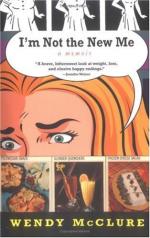“Mr. Lincoln proceeded to rally the Buffalo convention for forbearing to say anything—after all the previous declarations of those members who were formerly Whigs—on the subject of the Mexican War because the Van Burens had been known to have supported it. He declared that of all the parties asking the confidence of the country, this new one had less of principle than any other.
“He wondered whether it was still the opinion of these Free Soil gentlemen, as declared in the ‘whereas’ at Buffalo, that the Whig and Democratic parties were both entirely dissolved and absorbed into their own body. Had the Vermont election given them any light? They had calculated on making as great an impression in that State as in any part of the Union, and there their attempts had been wholly ineffectual. Their failure there was a greater success than they would find in any other part of the Union.
“Mr. Lincoln went on to say that he honestly believed that, if all those who wished to keep up the character of the Union, who did not believe in enlarging our field, but in keeping our fences where they are, and cultivating our present possessions, making it a garden, improving the morals and education of the people, devoting the administrations to this purpose—all real Whigs, friends of good honest government—will unite, the race was ours. He had opportunities of hearing from almost every part of the Union, from reliable sources, and had not heard of a county in which we had not received accessions from other parties. If the true Whigs come forward and join these new friends, they need not have a doubt. We had a candidate whose personal character and principles he had already described, whom he could not eulogize if he would. General Taylor had been constantly, perseveringly, quietly standing up, doing his duty, and asking no praise or reward for it. He was and must be just the man to whom the interests, principles, and prosperity of the country might be safely intrusted. He had never failed in anything he had undertaken, although many of his duties had been considered almost impossible.




